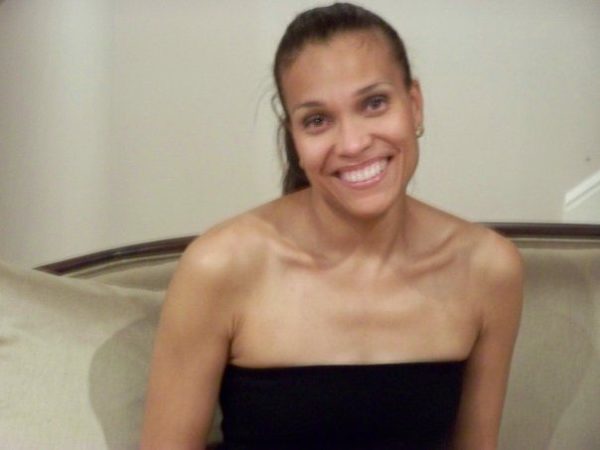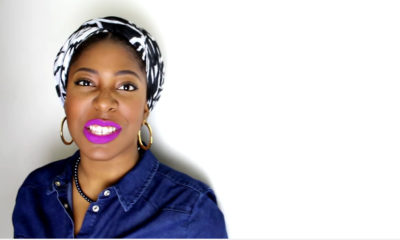News
White Women are Easier to Befriend than Dark-Skinned African Americans? This Light-Skinned Woman Thinks So
An article written by African-American award-winning journalist, Kim Lute, is causing quite a stir online.
In the article, published on Huffington Post, Lute, who is light-skinned, says ever since she moved to Atlanta, she has found that it is much easier to befriend White women than it is to be friends with dark-skinned African Americans.
Read excerpts from the article:
My French Creole features speak to a long history of miscegenation: green eyes, skin the color of a white peach and a sharp Puritan nose to match my thinly drawn Vermillion lips. Still, my blackness is always in question because of my lightness, especially among my darker sisters.
Imagine if you will, having an appearance that, if we’re honest, harkens an antebellum era in which black women were viewed as a cross between farm equipment and an outlet for other’s deviant sexual desires. A time when light and dark black women were separated and pitted against one another in the hopes of forever severing what should have been an unbreakable bond — creating envy, disdain, self-loathing and unnecessary competition.
Welcome to the plight of the light African American woman navigating the “darker the berry the sweeter the juice” cosmos, where mere physical differences (fine hair to thicker locks and thin lips to billowy pouts) serve as the basis for generational division. Sadly, I recently learned that these divisive lines, created generations ago, remain frustratingly in place.
Weeks ago I wrote an essay critiquing a popular entertainer (who happens to be light, though she’s darker than me) who I believed had wrongly received an honor partly because of America’s preference for lighter blacks over darker ones.
In the time that it takes to write a hateful tweet, I was labeled a self-hater and, humorously, a “tragic mulatto” who was secretly ashamed of my “obvious European heritage.” For the record, both of my parents are black. As are both sets of my grandparents. Of course these vital facts mattered none. As the piece went viral, I found myself pitted against both those who looked like me (I’d apparently broken code and dared critique another light sister) and those who didn’t (I had not only caused “unnecessary division,” but I had the audacity to talk colorism when I certainly hadn’t experienced the same depth of racism so many others had.)
In all fairness, this “mulatto” (which technically I am not) has led a far easier life simply because I lack darkness. The unwritten rule is that the darkest women are the most burdened while lighter black women are, I suppose, damned to “house Negro problems” that equate to mere hiccups in days that are perpetually long with happiness, job promotions and our pick of viable suitors. Dark or light, black women are long overdue to finally own up to our deep-rooted resentment toward one another. No, I may not have lost out on a promotion, but when I walk into a room I am still deemed an “other.” It’s not clear to most to what extent I am unlike the majority, but it’s enough to ensure my piece of the American pie is unfairly smaller than non-blacks.
Allow me to join an already uncomfortable conversation. I’m going out of my cotton-picking mind trying to convince my darker sisters that I’m not their competitor, and that loving who I am, and what I look like, isn’t a condemnation of darker women. If I’ve made great strides in my career it is because I’ve faltered, failed and tried again, ad nauseam. But is also because society finds me less threatening. I do not believe I’m prettier than any other woman, and know that my finest qualities have nothing to do with my “funny-colored eyes” or “fine hair.” I’m saddened that we have imposed a self-defeating value system based mainly on our exterior differences. And contrary to certain beliefs, I too have experienced the most blatant racists insults, perhaps more so than others because I’m a writer who targets her subjects indiscriminately. Don’t let this “light, damn near white” complexion fool you.
As a journalist, author and the designated “light girl” in my coterie, I’m frankly “Fanny Lou-Hamer tired” of the nitpicking among black women. Since moving to Atlanta in the millennia, I’ve befriended mostly white women. Why? The unvarnished truth lies somewhere between my own emotional hang-ups and the fact that most of the darker black women I’ve met are competitive, strident, pushy and critical of my decisions. As such, it’s been easier to socialize with those women who value my friendship without stipulations and constant backtalk. Thus, my friendships with white women are neat, unfettered and based solely on our likes and dislikes.
And instead of forcing my friendship on black women who want nothing to do with me, I’ve allowed my other relationships to develop organically even if it meant there was a glaring absence of color that would cause my ancestral foremothers to spin in their unmarked graves.
So why is it so hard for some black women (myself very much included) to foster and gain positive long-term friendships with each other? The initial response would be petty jealousy, arrogance and confrontational behavior, systemic roadblocks that were put in place long before this generation was born.The whole truth, I suspect, harkens back to slavery, in which blacks as a whole were forcibly pitted against one another; no group more so than black women. Lighter mothers, daughters and sisters were given an unfair, unjust and amoral advantage over so-called jezebels, mammies and jigaboos which fostered disheartening prejudices that continue to stain and cripple our modern day relationships…






















